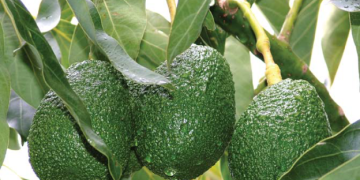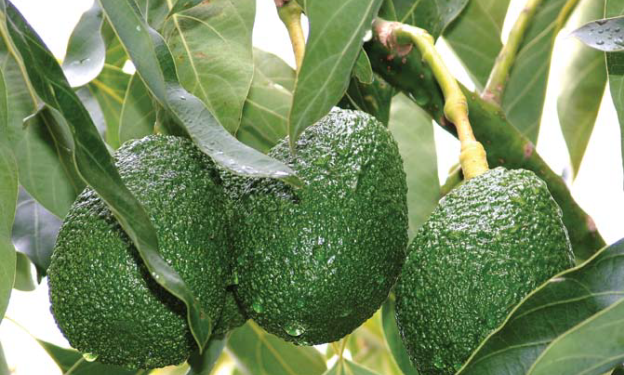#Avocadoexports #Kenyaagriculture #Indianmarketaccess #globalavocadotrade #agriculturetrends #avocadoproduction #internationaltrade #small-scalefarmers #agriculturalgrowth
Kenya’s avocado industry is set to bloom further as it prepares to export avocados to India in September. This article delves into the details of this exciting development, highlighting the potential benefits for Kenyan farmers, exploring the current avocado export landscape, and shedding light on the global avocado market trends.
Kenya, often referred to as the “Land of Avocados,” is poised to make a significant mark on the global avocado trade. With the Indian market opening up for Kenyan avocado exports in September, the nation’s farmers have an exciting opportunity to expand their avocado plantings, leading to higher earnings, increased employment opportunities on farms, and a range of downstream benefits.
Avocado Export Destinations
Before we delve into Kenya’s foray into the Indian avocado market, let’s take a closer look at the current export destinations for Kenyan avocados. The European Union, comprising countries such as the Netherlands, France, Spain, the UK, and Germany, has historically been a major market, accounting for 60% of Kenya’s avocado exports. Interestingly, in Europe, avocados have now surpassed grapes to become the second most valuable imported fruit from developing countries, according to available data.
In addition to the EU, Kenya also exports avocados to countries like the UAE, Saudi Arabia, Turkey, Egypt, Qatar, as well as to the Russian Federation, Ukraine, Kazakhstan, and Georgia.
Kenya’s Avocado Export Milestone
The significant milestone of gaining access to the Indian market has been a culmination of negotiation talks spanning five years between Kenya and India. This achievement comes on the heels of Kenya’s successful entry into the markets of China and Mauritius, with ongoing discussions about access to the lucrative markets of the USA and South Korea.
To ensure the export quality of avocados, Kenyan growers are required to employ pest control measures such as fumigation using Methyl bromide or cold treatment as alternatives. The inaugural shipment to India will be sent out through a diplomatic bag, and subsequent exports will involve collaboration with the Kenya Plant Health Inspectorate Service (KEPHIS).
Global Avocado Market Outlook
According to the Organization for Economic Cooperation and Development (OECD) and the Food and Agriculture Organization of the United Nations (FAO) report titled “Agricultural Outlook 2021-2030,” avocados are projected to become the world’s most traded fruit by 2030. Avocado production, particularly in Kenya, has witnessed rapid growth in recent years and is expected to remain the fastest-growing major tropical fruit in 2021-2023.
In Kenya, avocado production is projected to reach a staggering 12 million tonnes by 2030, with up to 3.9 million tonnes earmarked for export. This will surpass the exports of pineapples and mangoes, primarily driven by strong global demand and favorable export prices.
Global Avocado Production Landscape
It’s worth noting that the top 10 avocado-producing countries collectively account for nearly 80% of global production. By 2030, around 74% of this production is expected to remain concentrated in Latin America and the Caribbean, thanks to their favorable climatic conditions.
Mexico, the world’s largest producer and exporter of avocados, is poised to see 5.2% annual growth over the next decade, largely due to continued growth in US demand. Mexico is projected to increase its share of global exports to 63% by 2030, despite emerging competition from new exporters like Peru, Colombia, and Kenya.
Kenya’s Remarkable Rise
Kenya’s avocado industry has witnessed a meteoric rise, with production doubling over the past five years. According to the latest official FAO statistics, Kenya is now the world’s sixth-largest avocado producer. The country boasts a planted area of nearly 26,000 hectares and a production of 417,000 metric tonnes in 2021, representing a twofold increase compared to 2016.
This remarkable growth, averaging 20% per annum, can be attributed to the expansion of avocado plantations (at an average of 14% per annum) and increased yields (about 6%). It’s noteworthy that the sector is still predominantly dominated by small-scale farmers owning less than 2 hectares, contributing approximately 70% of the country’s avocado production, with over 23% being exported.
Kenya’s entry into the Indian avocado market represents a promising opportunity for the country’s farmers to further boost their avocado production and export revenues. As global demand for avocados continues to soar, Kenya’s avocado industry is set to flourish, making it a vital player in the world’s avocado trade. With careful management and adherence to quality standards, Kenya’s avocado sector is on a trajectory of remarkable growth, benefiting both farmers and the national economy.































